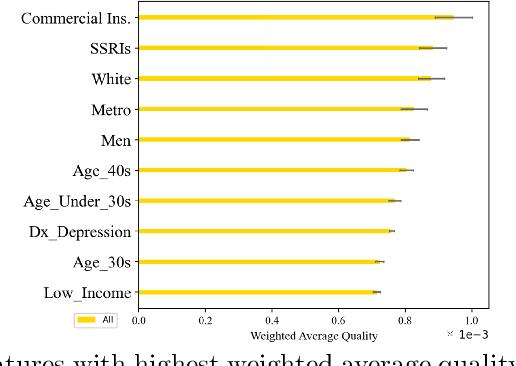Identifying the Leading Factors of Significant Weight Gains Using a New Rule Discovery Method
Paper and Code
Nov 04, 2021



Overweight and obesity remain a major global public health concern and identifying the individualized patterns that increase the risk of future weight gains has a crucial role in preventing obesity and numerous sub-sequent diseases associated with obesity. In this work, we use a rule discovery method to study this problem, by presenting an approach that offers genuine interpretability and concurrently optimizes the accuracy(being correct often) and support (applying to many samples) of the identified patterns. Specifically, we extend an established subgroup-discovery method to generate the desired rules of type X -> Y and show how top features can be extracted from the X side, functioning as the best predictors of Y. In our obesity problem, X refers to the extracted features from very large and multi-site EHR data, and Y indicates significant weight gains. Using our method, we also extensively compare the differences and inequities in patterns across 22 strata determined by the individual's gender, age, race, insurance type, neighborhood type, and income level. Through extensive series of experiments, we show new and complementary findings regarding the predictors of future dangerous weight gains.
 Add to Chrome
Add to Chrome Add to Firefox
Add to Firefox Add to Edge
Add to Edge